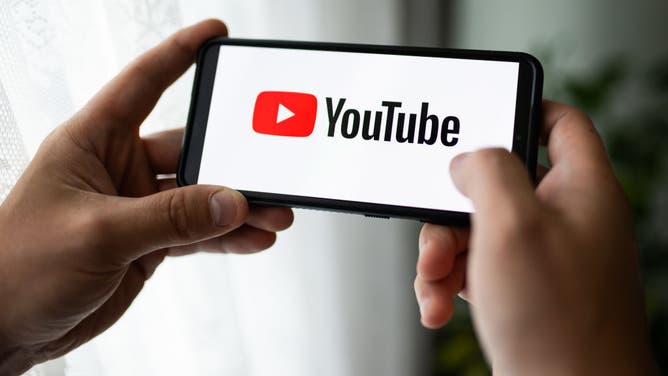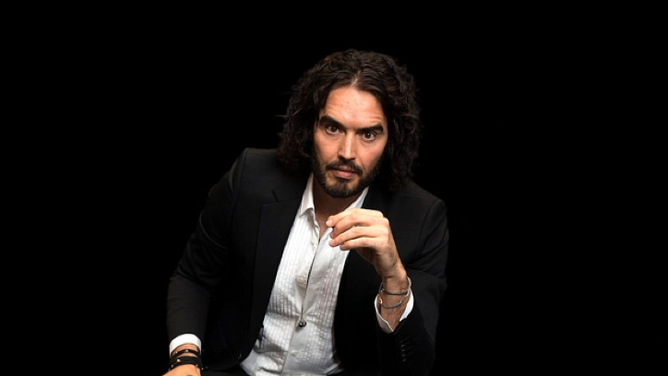The Dangerous Precedent Of YouTube Demonetizing Russell Brand Over Unproven Rape Allegations | Bobby Burack
Guilty until proven innocent.
That is the standard YouTube applied to comedian Russell Brand.
Monday, the video platform demonetized Brand after four women accused him of rape and sexual assault between 2006 to 2013.
YouTube froze the revenues for all four of Brand's channels, including his main page with over 6.6 million subscribers.
“This decision applies to all channels that may be owned or operated by Russell Brand,” said YouTube.
The allegations against Brand are unproven.
He denies them. "Amidst this litany of astonishing, rather baroque attacks are some very serious allegations that I absolutely refute," said Brand in a statement.
There have been no criminal charges brought against him.
At this point, the allegations are a clichéd case of "he said, she said." Yet, without any information, YouTube ruled the "she said" was more credible.
Brand can no longer earn money on the service, as a result.
The precedent is set: the ability to make money on YouTube is contingent upon someone accusing a creator of a crime, no matter the evidence or lack thereof they provide.
YouTube holds a media-players-and-streaming-platforms market share of over 97%. YouTube is how many creators earn a living. They are dependent on the platform, a platform that reserves the arbitrary right to cut their source of income at any time.

POLAND - 2023/07/13: In this photo illustration a YouTube logo seen displayed on a smartphone. (Photo Illustration by Mateusz Slodkowski/SOPA Images/LightRocket via Getty Images)
Now, Brand is wealthy enough to withstand demonetization. But others are not. And authoritarian measures rarely end with a single target.
May we remind you of the advent of internet suppression?
In 2018, society dismissed social media services for de-platforming Alex Jones for “abusive behavior." No one influential in Washington or the media challenged Facebook, Twitter, or YouTube on banning Jones.
The lack of resistance empowered social media leaders. It informed them their power could be unilateral. And their engagement in politically-motivated spiraled from there.
Three years later, Twitter banned Alex Berenson, under the same, for questioning government accountability during the Covid-19 pandemic. Berenson highlights a long list of journalists censored over their factual coverage of Covid.
As I wrote at the time, "Internet suppression progressed from a tool to prevent conspiracy theories to a means to silence individuals who challenge government rule."

Big Tech's de-platforming policies ultimately proved neither consistent nor transparent.
Last June, YouTube removed a video of Jordan Peterson interviewing RFK Jr. The service deemed the discussion conspiratorial, a violation of its vaccine policy.
Yet the accounts that pushed and continue to push the Russia-Trump conspiracy remain able to monetize content, like The Young Turks and Pod Save America.
The approach to demonetization is similar. YouTube froze Brand's accounts but allows rapper Rapper Lil Mosey, who was also accused of rape in 2020, to continue monetizing his channel.
Nelly was arrested for rape in 2018. YouTube never restricted his account.
Multiple women accused rapper T.I. of sexual assault in 2021. Luckily, the rapper can still earn money from his YouTube page to pay legal fees.
Social media platforms should not be in the business of deciding which accusations are valid, and who should be able to monetize content as a result.
Further, YouTube would have no burden to bear if Brand is ever found guilty.
He is not an employee. YouTube claims, legally, it's a platform, not a publisher (see Section 230 of the Communications Decency Act).
Thus, there is no need for YouTube to rule on the accusations against Brand. Other than to dictate who can and cannot be heard, of course.
The story is larger than Russell Brand. History warns that demonetizing a creator on the basis of unproven allegations won't end with him.
Brand may become the avatar of the practice, but he most certainly won't be the extent.
In fact, YouTube's response encourages others to levy more accusations against influencers, knowing they could derail the influencer's earnings with a quick, even baseless allegation.
There is no proof Russell Brand is a rapist or an abuser. At least not yet. He is innocent until proven otherwise.
Yet anonymous suits running the most powerful video service in the country have decided he is guilty. And the burden is now Brand's to prove he's innocent.